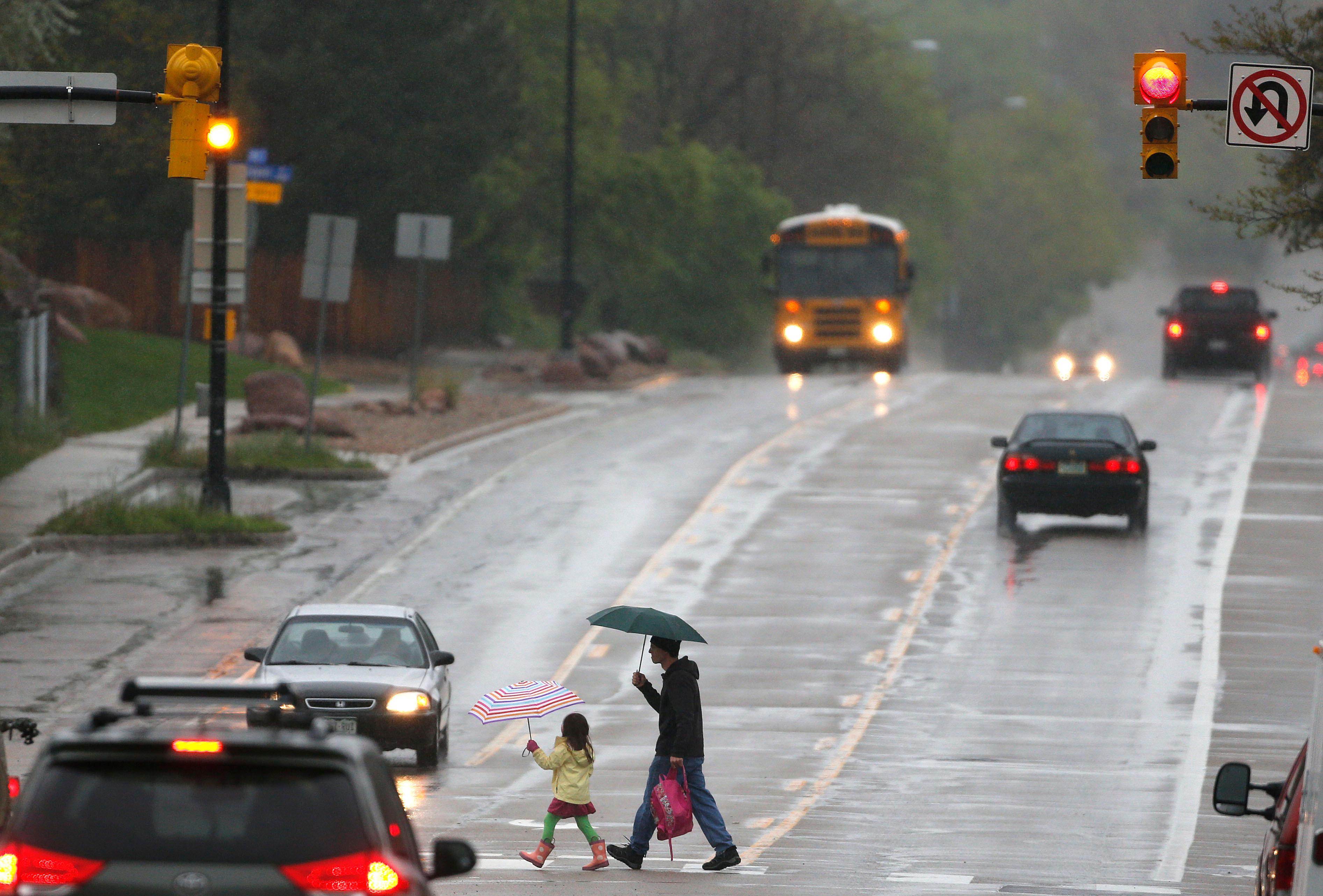
A federal class action lawsuit filed against the Boulder Valley School District Tuesday alleges the district has failed to educate the district’s 3,700 special needs children while COVID-19 restrictions are in place.
The suit asks Boulder Valley schools to offer the option for in-person learning five days a week for children with disabilities. Right now, the district offers in-person learning two days a week. It alleges that many special needs students have gone without services for months.
“We have to prioritize our most vulnerable populations,” said Denver-area educational civil rights attorney Igor Raykin. He said some children with mild or moderate special education needs may be able to get by in an online environment but that is not the case for students with severe needs.
“There is no substitute for that [in-person] presence,” he said. “Online will not work for them. They have to be in the classroom…I think we're seeing right now just how absolutely vital our schools are and when they're not providing these services, then the damage is substantial.”
The complaint claims that by allowing students with developmental or physical disabilities to receive in-person education only two days a week, the district is failing to comply with the federal Individuals with Disabilities Education Act (IDEA).
The district says it has been working hard during a crisis to serve all of the district’s 31,000 students, including those with special needs. In its reintroduction to school plan, it outlines that students in intensive special education programs in grades three through 12 could attend in person two days a week starting Sept. 29.
“We understand that for many families the pandemic and its impact on schools has been extremely challenging,” the district said in a statement. “BVSD remains dedicated to providing students with special needs with a free appropriate public education as part of its mission to create challenging, meaningful and engaging learning opportunities so that all children thrive and are prepared for successful, civically engaged lives.”
Federal law requires public schools to provide academic, social-emotional and other services to children with disabilities. That happens through trained staff including teachers, psychologists, social workers, counselors and occupational therapists. The law requires that each student receive the special education services outlined in individualized education plans (IEPs). Those are highly detailed plans of action spelling out accommodations and goals for the student, based on their needs.
The lawsuit against BVSD was filed on behalf of two families of children with severe disabilities. The students named in the suit, identified by their initials, need extensive accommodations that can only be met when he and others are physically present, rather than through a screen.
C.D. is described as having multiple disabilities, including Down syndrome and various intellectual and language impairments. His plan has identified his highest need as “community safety, communication skills, friendships and social relationships, personal care needs.” One goal focused on transitioning from one physical setting to another. He also works with an occupational therapist to assist him with independent living skills, such as opening a can with a can opener, slicing items with a serrated knife and zipping up a zipper on his coat.
“Meeting these needs requires a physical presence with the community that online instruction cannot provide effectively,” the suit states.
The second student named in the suit, F.S., has been diagnosed with low-functioning non-verbal autism.
His plan specifies that he needs accommodations such as access to sensory tools; warning before transitions; simple directions with targeted language; assistance with toileting and dressing; assistance with meals; supervision during all times of the day; and small group and one-to-one instruction.
The plan also lays out detailed and extensive goals with dates for accomplishing heavy work tasks or multi-step activities including “hand-over-hand” instruction where the teacher places his or her hand over the student’s, guiding the child through an activity.
“They can only be met when F.S. is physically present and cannot be met through online, remote instruction,” the suit states.
In addition, F.S.’s disability prevents him from wearing a mask for an extended period of time, according to a doctor’s note. The parents worked extensively with their child to get him to wear a mask — without success.
"His inability to wear a mask is a result of his autism and the sensory issues that go along with that,” the note reads. “Wearing a mask during school is not a feasible endeavor for my patient and my request would be that he be able to attend school for the benefits of education and socialization while not being required to wear a mask.”
The suit states that BVSD refused to make reasonable accommodations and modifications for the child and alleges that the district will not allow him to attend school unless he engages in “mask training.”
“The school district is substituting its own medical judgments for those of an actual professional,” Raykin said.
The suit argues that because students with special needs represent 12 percent of BVSD’s student population, the district could maintain proper social distancing and other safety protocols in every school. Raykin pointed out that other districts offer students with disabilities all online instruction.
“If we can get Boulder Valley to move in the right direction, then we can get other school districts to move in the right direction as well,” he said.
There have been a growing number of court filings by parents of children with disabilities in other states including Hawaii, Illinois, Pennsylvania and New York.









